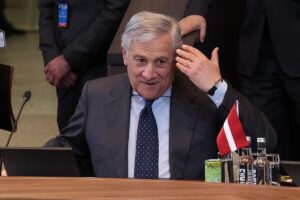UPSC Relevance
- GS-2: International Relations – India-EU Relations, Trade Diplomacy
- GS-3: Economy – Bilateral Trade Agreements, Tariffs, and Protectionism
- Essay: Globalization, Geopolitics, and Trade Cooperation

Key Points
-
Position on U.S. Tariff Pause
- Tajani praised President Trump’s 90-day tariff suspension, advocating for similar EU-U.S. negotiations.
- He emphasized that zero tariffs would enhance global commerce and business confidence.
-
EU-India Bilateral Trade and Investment Agreement (BTIA)
- Both parties aim to finalize the BTIA in 2025, with stronger political commitment than in past efforts.
- Challenges include India’s restrictions on market access, particularly for wine, spirits, agriculture, and dairy.
- Tajani stressed the need for terms customized to the EU, distinct from U.S.-India agreements.
-
Critique of Trump’s Approach
- Tajani criticized the U.S. for not consulting the EU on issues like Greenland.
- He called for transparent U.S.-EU dialogue to avoid further transatlantic tensions.
-
India-Middle East-Europe Corridor (IMEC)
- Geopolitical instability, especially involving Israel, has delayed IMEC progress.
- Italy proposes advancing IMEC through Trieste Port under the EU’s Global Gateway initiative, as an alternative to China’s “Cotton Road.”
Analysis and Path Forward
- Italy and the EU view India as a critical partner for economic collaboration.
- Stability in West Asia is vital for unlocking IMEC’s potential.
- A successful EU-India BTIA must balance market sensitivities while fostering trust and long-term engagement.
- Strengthening multilateralism and equitable trade principles is essential amid growing protectionism.




